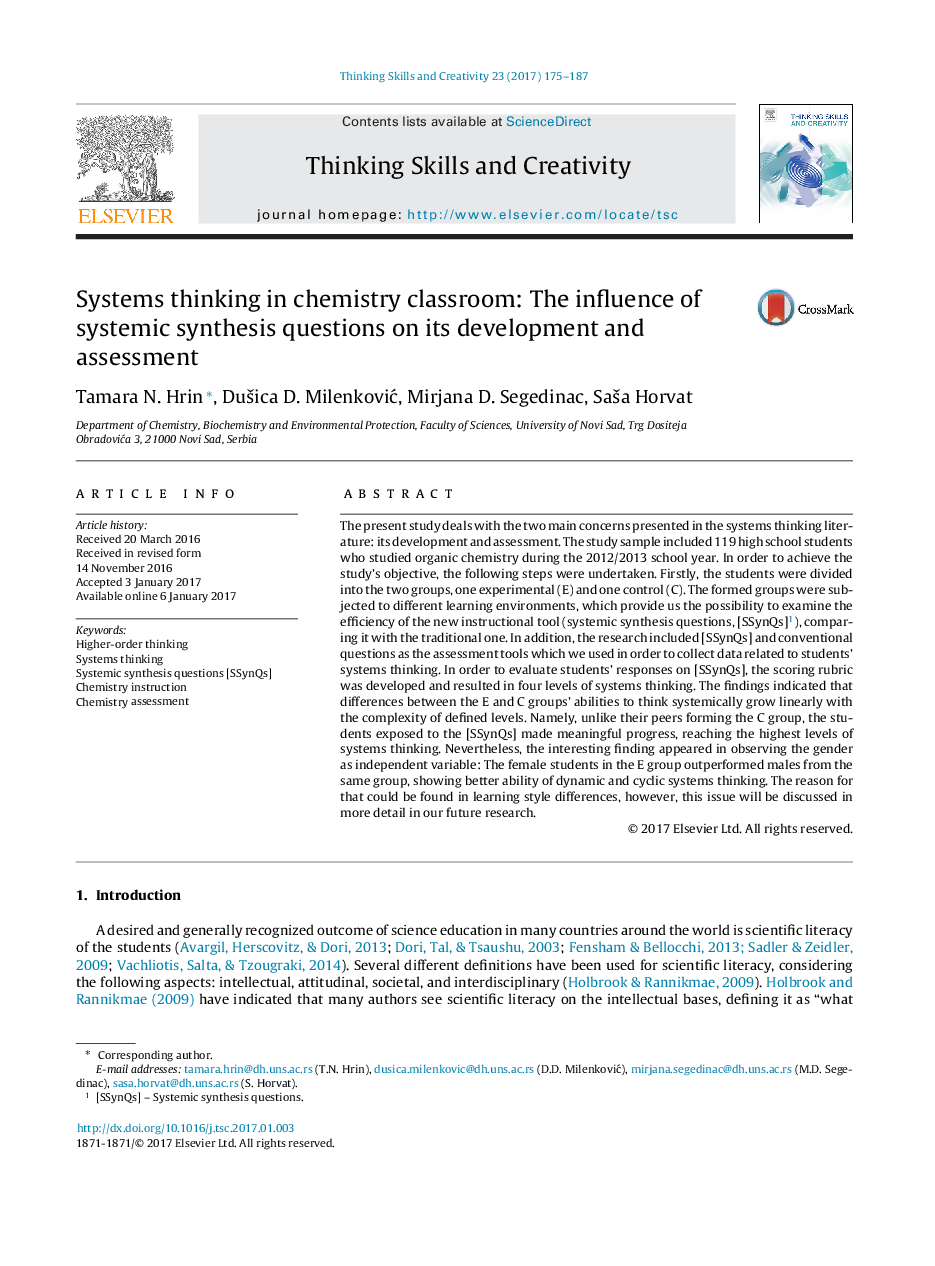| Article ID | Journal | Published Year | Pages | File Type |
|---|---|---|---|---|
| 4941838 | Thinking Skills and Creativity | 2017 | 13 Pages |
â¢Systems thinking is effectively evaluated by using systemic synthesis questions.â¢Systemic synthesis questions foster systems thinking on chemistry classes.â¢The experimental group outperformed traditionally taught students.â¢Traditionally taught students failed to reach higher levels of systems thinking.â¢The experimental group females outperformed the males.
The present study deals with the two main concerns presented in the systems thinking literature: its development and assessment. The study sample included 119 high school students who studied organic chemistry during the 2012/2013 school year. In order to achieve the study's objective, the following steps were undertaken. Firstly, the students were divided into the two groups, one experimental (E) and one control (C). The formed groups were subjected to different learning environments, which provide us the possibility to examine the efficiency of the new instructional tool (systemic synthesis questions, [SSynQs]1), comparing it with the traditional one. In addition, the research included [SSynQs] and conventional questions as the assessment tools which we used in order to collect data related to students' systems thinking. In order to evaluate students' responses on [SSynQs], the scoring rubric was developed and resulted in four levels of systems thinking. The findings indicated that differences between the E and C groups' abilities to think systemically grow linearly with the complexity of defined levels. Namely, unlike their peers forming the C group, the students exposed to the [SSynQs] made meaningful progress, reaching the highest levels of systems thinking. Nevertheless, the interesting finding appeared in observing the gender as independent variable: The female students in the E group outperformed males from the same group, showing better ability of dynamic and cyclic systems thinking. The reason for that could be found in learning style differences, however, this issue will be discussed in more detail in our future research.
Graphical abstractDownload high-res image (121KB)Download full-size image
